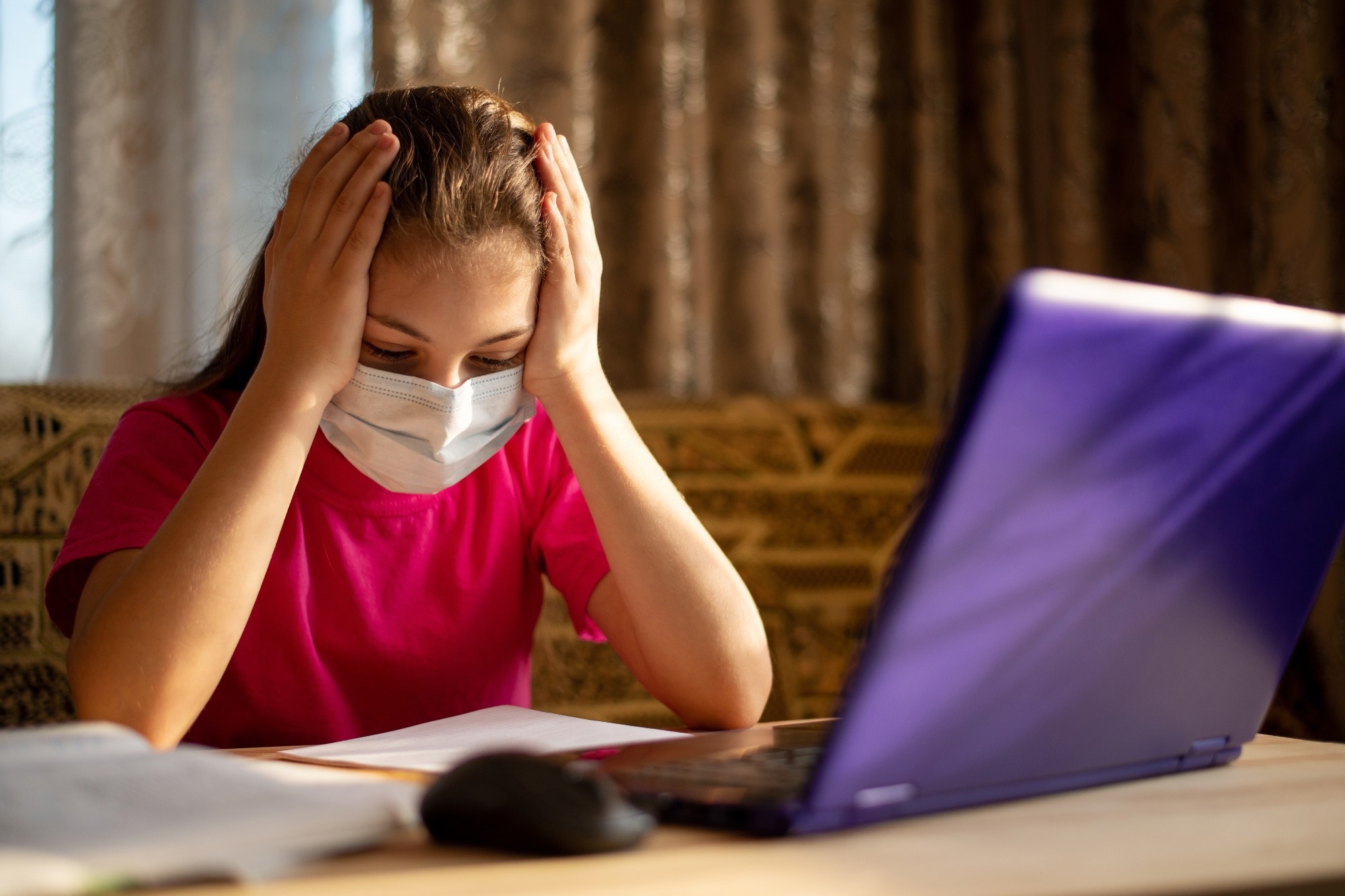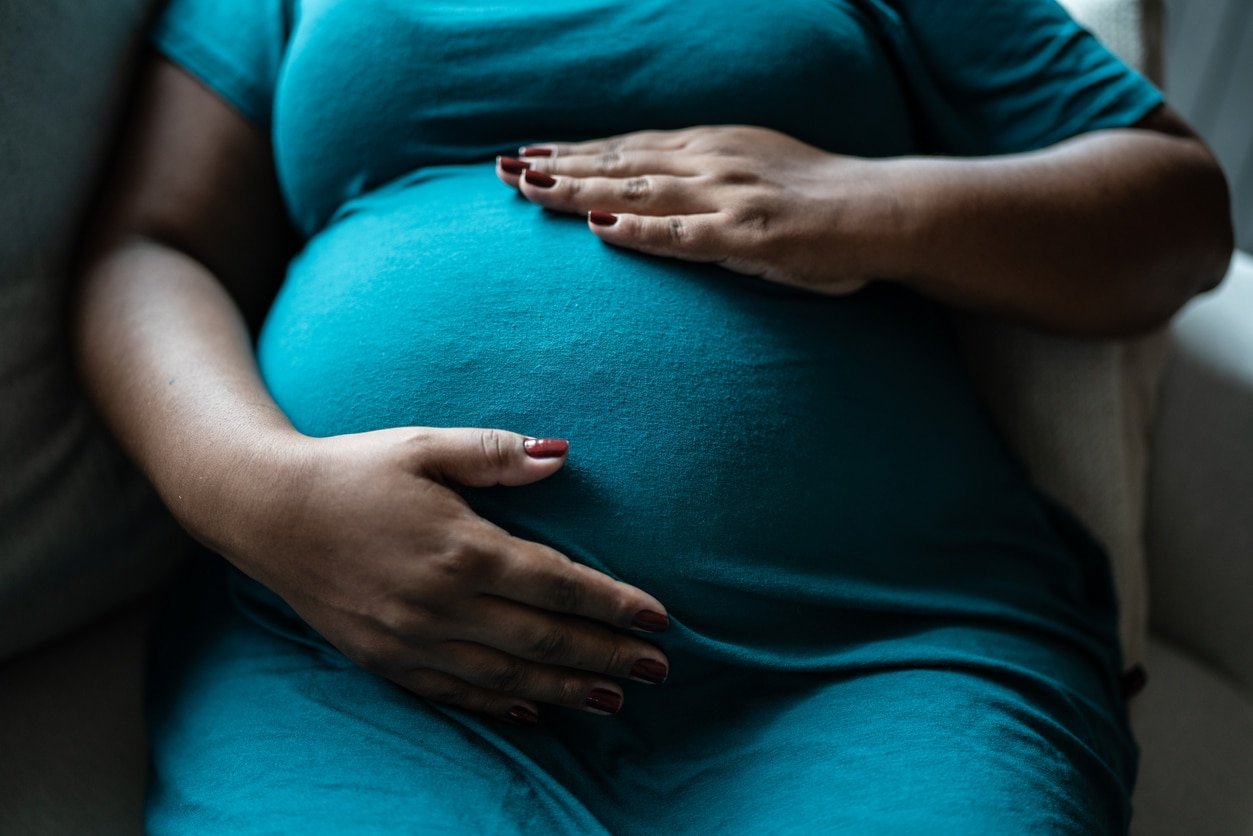In a recent qualitative study published in BMJ Open, researchers drew evidence from narrative interviews of children and young people (CYP) with Long Covid (LC) to improve their understanding of their school experiences in the United Kingdom (UK).
 Study: Impact of Long Covid on the school experiences of children and young people: a qualitative study. Image Credit: Vitalii Stock/Shutterstock.com
Study: Impact of Long Covid on the school experiences of children and young people: a qualitative study. Image Credit: Vitalii Stock/Shutterstock.com
Background
Even though they are at a lower risk of hospitalization and mortality than adults, CYP can experience LC, clinically defined as the presence of persistent coronavirus disease 2019 (COVID-19) symptoms for at least two months after initial infection, but which cannot be explained by another diagnosis.
Like adults, CYP might experience fatigue, headache, cognitive deficits, and shortness of breath, but their symptoms fluctuate in severity.
Research focus on LC has increased, but quality evidence on the incidence, risk factors, underlying mechanisms, and effective management of LC in CYP, plus evidence of its social and academic impact, is lacking. Like for adults, accurately measuring LC symptoms in CYP over time remains challenging.
Furthermore, systematic reviews have highlighted heterogeneous findings related to CYP’s with LC. However, qualitative studies examining its impacts on CYP’s school experiences are lacking.
Franco et al. reviewed 25 studies investigating recovery outcomes in CYP with LC. They found that LC did not substantially impair the school functioning of most children with persistent symptoms at three to six months of follow-up.
On the contrary, CYP with chronic fatigue syndrome (CFS)/myalgic encephalomyelitis (ME) experienced a significant shift from a so-called ‘normal’ trajectory of academic achievement.
Given CFS/ME is a condition similar to LC, researchers recommend awareness-raising and educational support for CYPs with CFS/ME.
About the study
In the present study, researchers interviewed CYPs aged 10–18 years and parents/caregivers of children aged ≥5 years, some of whom also had LC, between October 2021 and July 2022 via online video call/telephone.
Interviews lasted between 25 and 90 minutes. First, all participants recounted when they/their child first experienced COVID-19 symptoms.
Next, they answered questions about how LC had affected their school-related experiences. This data could help devise recommendations for schools to support CYP with LC.
An advisory panel comprising patient and public representatives remained involved in all aspects of the study, including interview content, topics, and recruitment methods, as they had real-life experience with LC or caring for a CYP with LC.
The study participants were recruited through several modes, such as LC support and community groups, social media, snowballing, and clinicians, to capture maximum diversity in the study sample by age, gender, race/ethnicity, geographical site, and social class.
Results
The study dataset had 22 CYP with LC (15 female) and 15 parents/caregivers (13 female), of which five themselves had LC.
The analysis identified three key themes for CYPs with LC, as follows:
i) These children wanted to go back to school;
ii) Experiences of CYPs in school while still living with LC; and
iii) Response of CYPs schools to their illness.
CYP explicitly mentioned that inability to attend school was stressful and placed high importance on returning to school full-time. However, they were aware that it required learning to prioritize school and deal with the demands of school without pushing themselves to relapses, as that would have led to further absence.
Some parents were worried whether school was a safe place for CYP with LC, especially because COVID-19 cases in schools were high, which might have resulted in reinfections or exacerbations of their LC symptoms. However, this finding requires further exploration to inform responses to future pandemics.
Further, the study findings suggested measures that schools could adopt to support CYP with LC and the urgent need to raise awareness about LC in healthcare and education professionals.
First and foremost, these professionals need to validate CYP’s experience of LC. Thus, they deemed it crucial to minimize adverse educational, social, and mental health sequelae of LC in CYP.
One of the striking recommendations for schools was tailoring adaptations to the individual needs of CYP with LC and evolving them over time.
For instance, schools should consider reducing timetables, prioritizing fewer subjects, giving rest time, allowing elevator use for CYPs with LC as some might be experiencing physical limitations, and using technology (e.g., artificial intelligence tools) to facilitate engagement. Most importantly, raising awareness among school staff is advised.
Conclusions
Researchers and clinicians now recognize LC as a post-COVID-19 condition with serious repercussions.
However, given its novelty, recent emergence, and problematic diagnosis, especially in CYP, have raised unprecedented pressures on healthcare facilities worldwide.
Nonetheless, there is a need for more research on CYP with LC, especially around the educational adaptations they might need to minimize its adverse effects on all areas of their lives, including health and social well-being and education.
Most importantly, these adaptations should be customized to individual needs as LC symptoms impact each one’s abilities differently.
Journal reference:
-
MacLean, A., Wild, C., Hunt, K., Nettleton, S., Skea, Z. C. and Ziebland, S. (2023) Impact of Long Covid on the school experiences of children and young people: a qualitative study, BMJ Open. doi: 10.1136/bmjopen-2023-075756. https://bmjopen.bmj.com/content/13/9/e075756

 PARENTING TIPS
PARENTING TIPS PREGNANCY
PREGNANCY BABY CARE
BABY CARE TODDLERS
TODDLERS TEENS
TEENS HEALTH CARE
HEALTH CARE ACTIVITIES & CRAFTS
ACTIVITIES & CRAFTS

